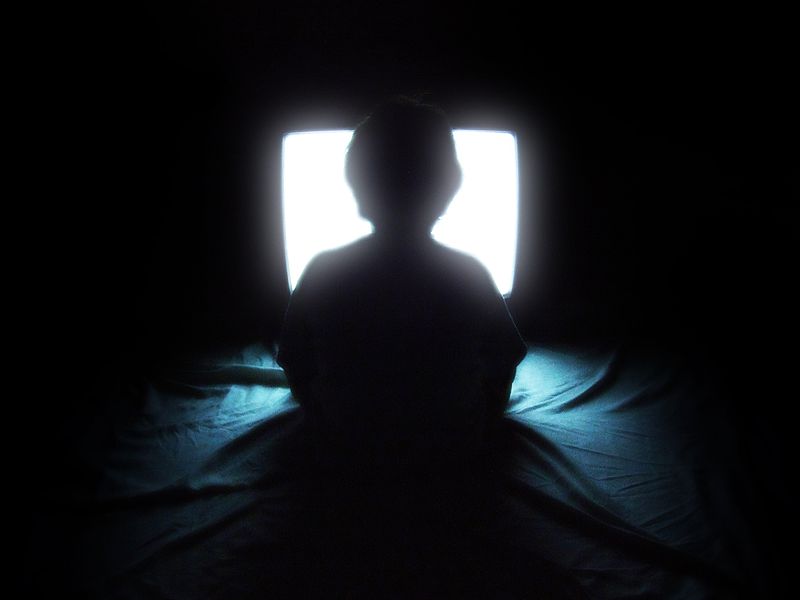New York Times columnist Teddy Wayne wrote about how “binge media culture” is huge and still growing in America. In his piece “Life Is Streaming Past You”, Wayne warns against falling prey to the temptations presented by new media distribution services such as Netflix and YouTube. He considers indulging heavily in content – binge-watching shows such as Arrested Development or House of Cards – as “escapist,” something almost dangerous that should be avoided. As a TV-marathoner myself, I couldn’t help but feel a bit guilty; I often find myself at the mercy of my computer monitor for hours at a time, enraptured by shows such as Dexter or Breaking Bad. Wayne reiterates the stigma I hear everywhere: that time spent watching television is time wasted. People often consider their TV addictions guilty pleasures. I did, too, until I stopped and thought about what I was ‘wasting’ my time on.
The content that we watch gives us insight into ourselves and our ambitions. What shows myself and many others have begun to gravitate towards aren’t ones of innocent distraction, like the cartoons of my childhood. They’re the ones made of darker stuff, with flawed and often downright evil protagonists. I’m talking about our Dr. Houses and Frank Underwoods. Our Walter Whites and Tony Sopranos. The characters that we love to binge on.
Within the past decade, television has seen an explosion in anti-hero protagonists. Some are lovable and quirky; others are cold and cruel. All share one trait: self-empowerment through disregard for authority. We love watching people break the rules. We cheer as Dexter successfully tranquilizes a new victim to kill. We laugh as Frank Underwood ends another man’s political career. We applaud when Walter White earns his first big stack of drug money. Why do we root for such monsters?
Perhaps, as Indypendent writer Nick Powers puts it, it’s because “we champion competent evil.” Voyeuristically, we enjoy seeing a character break the rules and profit from it. Perhaps a life of boundaries – boundaries set from primary school to secondary school, strengthened from secondary school to college, solidified from college to cubicle – daunts us. Following this system is following society’s definition of “goodness.” A good worker. A responsible student. The characters we root for – outliers and rebels to the system – dare to do more in one episode than what we would in our lifetimes. They make progress. They have power. And in watching them, we feel powerful. I know that Frank Underwood does horrible things, and yet I still somehow share in his smug victory over his adversaries.
This is why I scoff when people tell me I’ve wasted my time on television. This is why I shamelessly spent an entire weekend burning through the new season of House of Cards, temporarily cutting off communication with all friends and family. People like Frank can serve as an inspiration, as motivation. Why limit your admiration to those who merely succeed under the system? Why not root for those who question the system and their limits, who push past what’s acceptable and normal? Compare, for a moment, Walter White and Bill Gates. Both dropped out of their expected role in society and decided to use their strengths to earn massive amounts of money. Walter may have done so selling narcotics instead of software but the principle is the same. Both challenged societal expectations and came away winners.
Fiction does not always have the staying power that reality does. Shows and stories come and go, but history is written, recorded, and reiterated indefinitely. Fiction is bounded only by imagination; there is a danger in become overly engrossed and bingeing on it. But an even greater danger is to have no imagination or other fantasy to escape to at all. As long as we don’t lose sight of what’s real and what’s not, there is no harm in spending time in another world, learning from its characters and happenings. And to respond to Teddy Wayne: why does it matter if I watch the new season of House of Cards in a day or a month? Should I feel guilty about spending my time on something I enjoy, on something that intrigues me? So long as I don’t get lost in the fiction of television, there’s no harm in ‘escaping’ to another place, especially if I can learn from it.
Kyle is a former MDO staff writer who now attends Columbia University.

Connor Riley • May 29, 2014 at 12:02 am
Interesting idea but definitely true in many cases. I know I binge tv shows specifically because of certain characters, especially bad ones.